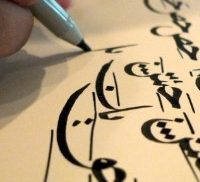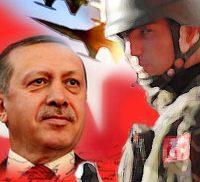This dossier stems from the debate sparked by Elizabeth Suzanne Kassab’s article—which opens this collection—on the transformation of the Arab intellectual scene after 2011. Her notion of a “new contemporary” in Arab thought prompted a series of contributions that do not aim to offer solutions, but rather to raise new questions, probe unresolved issues, and put forward critical perspectives. Bringing together Kassab’s essay and two related pieces, the dossier explores how Arab thought is redefining itself in light of the uprisings, the failures of political transitions, and the moral and intellectual rupture marked by Gaza.
Dossiers
- Who are all those thinkers, from Morocco to Iran, who are attempting to change Islam from within? And what are their most challenging ideas? Some famous, some less so, some religious, some secular, they are the often-persecuted philosophers, sociologists and authors of Islam today. With this “intellectual chart” of changes in Islam edited by Giancarlo Bosetti, Nina zu Fürstenberg and Nicola Missaglia, Reset-DoC wishes to offer its English-speaking readers a compass to navigate the universe of those encouraging dialogue and mutual understanding in the Muslim world.
- Almost a year after the revolutionary movements that swept away Mubarak’s regime, Egypt’s future still seems uncertain. The citizens of the most populous and geo-strategically sensitive country in the region are obstinately and very bravely facing the sudden reversal of a still violently militarised state apparatus. The electoral process will take a long time. Who are the political, institutional and civilian players in this new Egypt and what are they doing? Resetdoc posed these questions to Francesco Aloisi de Larderel, former Italian Ambassador to Cairo and to Margot Badran, senior fellow at Georgetown University.
- Since 2009 the situation between Erdoğan’s Turkish government, now in its third term, and the Kurds has deteriorated. The Kurdish conflict has become increasingly worrisome in the months since the June 2011 elections. After the PKK’s attack on October 19th and the death of 24 Turkish soldiers, it seems that now the AKP government wishes to impose a unilateral military solution. But it is possible that the conflict may have a political solution, or perhaps the new Turkish constitution could remedy this spiral of violence. We spoke to Ferhat Kentel from Istanbul’s Şehir University and to Hugh Pope, director of the Turkish programme at the International Crisis Group.
- While established democracies have a reputation for being peaceful and stable, developing democracies have an equally strong reputation for instability and violence. Tunisia is now breaking this rule, with its first elections on October 23rd marked by order in the voting lines, trust in the ballot box and celebration in the streets. The new issue of Resetdoc features on-the-ground analysis of this historic event and the new questions it raises: Why don’t secularists trust Ennahda? Should they? Who will form the coalition government? What does the Tunisian election mean for other countries in the region? What lessons does it hold for Western democracies? Read below for our thoughts.
- At the May 2011 Istanbul Seminars organized by Reset-Dialogues on Civilizations, five important thinkers came together from around the world to debate “The Promises, Challenges and Expectations of the 1989 of the Arab World.” With Giancarlo Bosetti as the moderator, Abdullahi An-Na’im, Seyla Benhabib, Akeel Bilgrami, Giuliano Amato and Soli Özel analyzed the individual aspects of the Arab Spring, emphasizing the complex dynamics involved. These are the complete transcripts of this event.
- Erdoğan’s Turkey is gaining respect as an indispensable player at both the regional and international levels. During the Justice and Development Party, or AKP, administration, Turkey has undergone many internal transformations, involving crucial issues such as the role played by the army, secularism and minority policies. But what are the still unresolved problems? And what are the objectives of the AKP government? In two interviews, ResetDoc posed these questions to two of Turkey’s most respected and influential intellectuals, Soli Özel, a political analyst and professor of international relations at the Bilgi University and Kadir Has University in Istanbul, and Nilüfer Göle, a sociologist at the Ecole des Hautes Etudes en Sciences Sociales in Paris.
- What are the Balkans today? Twenty years after the bloody implosion of Yugoslavia, the so-called “Yugosphere” is a complex area, with many commonalities and a widespread desire to cooperate to create a better future. But the wounds that past wars are still open. What prospects are there nowadays for processing collective memory? How has Islam changed in the Balkans? What about Serbia, Kosovo and Europe; where is the search for new national identities leading? Resetdoc has tried to answer these questions with the below dossier, assembled by Matteo Tacconi, a journalist and an expert on the Balkans.
- In an Egypt enveloped by the Arab Spring, publishing houses, daily newspapers and independent magazines are flourishing again as they deal with the challenges and much post-Mubarak enthusiasm. What problems will these heroic publishers have to address now? And what problems afflicted them until they took to the streets on January 25th 2011? What does the creation and spreading of culture involve in today’s Egypt and Arab World? With a dossier by Elisabetta Bartuli and Elisa Pierandrei, Resetdoc posed these questions to those directly involved, in the front lines from news desks to Tahrir Square.
- ResetDoC.org has already offered its English-speaking readers a first compass to navigate those reformers in Islam encouraging dialogue in the Muslim world with a closer examination of eight great thinkers: Abdou Filali-Ansary, Abdolkarim Soroush and Muhammad Talbi first, then Nilüfer Göle and Navid Kermani and, at last, the three great ‘masters’ Mohammed Arkoun, Fou’ad Zakariyya and Mohamed Abed Al-Jabri. Today, we present three profiles of women who devoted themselves to understanding and interpreting Islam from a female point of view. READ HERE
- Turkey: The Justice and Development Party (AKP) and its charismatic leader Recep Tayyip Erdoğan have once again proved their popularity among the Turkish electorate, obtaining close to 50% of the votes in the June 12th elections. This victory, however, differs from those in the AKP’s past. What are the challenges that the AKP and the “Turkish model” face now and in the future? Resetdoc.org analyses the issue in depth, speaking to Hugh Pope at the International Crisis Group and with a far-sighted 2009 essay by Andrew Arato from the New School for Social Research in New York.




